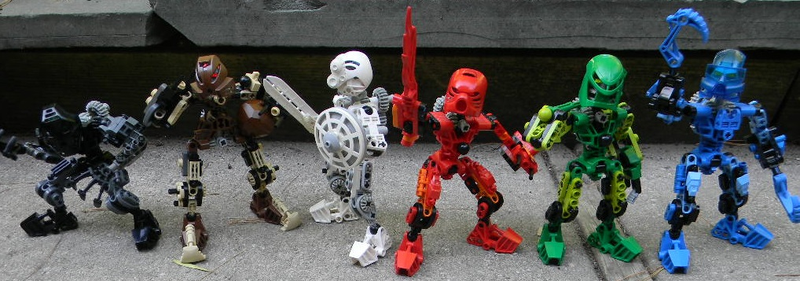Disclaimer: The following post is dark, with themes of meaninglessness and suicide rearing their heads. I’ve put off writing this for some time now, but a part of me urged me to do it, partially to confront my own demons, but also to reassure others that they’re not alone in distressing moments. Honestly, my mental health is fine, but episodes like what you’re about to read do occur from time to time; I suspect that for others, this dialogue is hauntingly familiar in little ways. Remember, there is always someone you can talk to: you are not alone.
2am.
Or something around there – I’m not too sure. But it’s definitely been a while since the kindle got put away, the lights got turned off and I hopped into bed, which was around 1:30am. Taking that nap in the afternoon was definitely a mistake, I think to myself.
As the night progresses, still wide awake, something slowly but surely begins clawing its way into my head. It’s my inner darkness, one which loves to do nothing more than throw everything I know and believe into chaos. Usually, I keep a tight lid on it but tonight, my defences are down. The darkness lunges at the opportunity, slithering into my thoughts with its sickly-sweet voice.
Hi Eric, how’s it going? Done anything special recently?
It’s a trick-question, one meant to lower my guard. The best way to deal with this is simply to ignore it and not let the voice get what it wants. But despite my best efforts tonight, the darkness doesn’t let go – perhaps it senses my vulnerability. Finally, I give in.
Look, I have a meeting tomorrow morning and I’d like to sleep right now if that’s alright. Can you go away please?
Oh, so you think your meeting tomorrow is more important than what I’ve got to say to you? No, stay child – and listen carefully.
I already know what’s coming, but before I can shut the darkness away or brace myself, the onslaught begins.
Look here, everything is meaningless. One day, you, your family, your friends and everyone you care about will die and be forgotten. Time and death are two relentless forces that won’t stop for anyone. You know what this means? NOTHING YOU ACHIEVE IN YOUR LIFE WILL MATTER. You’ll be forgotten, just like the billions of people that have died before you. And you think you’ll change the world? Hah, believe me, you’re just nowhere near as special as you think. There are SO many kids smarter, more driven and with better opportunities than you that will go on to achieve successes you could only DREAM about. No, Eric – you’re as ordinary as they get. WAKE UP.
Ah yes, good old nihilism. It’s an uncomfortable argument, but one which I’ve come to terms with over time. The dance between us continues, in a variation that’s been played out before.
Well, I see where you’re coming from and indeed, it does seem depressing. However, I believe in a God who created heaven and Earth; one which gives meaning for people’s existence and real value on my own and others’ lives. This means that-
This whole Christian thing again? Let’s be honest, you don’t really believe in God. I mean, when’s the last time you shared the gospel to someone? If you really believed, you’d be declaring the ‘Good News’ to all the corners of the Earth. Yet here you are, living a comfortable and selfish life in your 2-bedroom apartment. You’re as fake as they get, admit it.
Okay, I agree that I could be doing more to share my faith and I’m working on it – thanks for the reminder. But I also understand that you don’t have to necessarily tell the gospel to evangelise, and I trust God’s plan to manifest itself in everyone eventually. How-
God’s plan?! How do you even know your God exists? Look at the times you’ve felt closest to God – a death in your family, a close friend’s conversion. It’s just your unconscious responding to emotional experiences: exactly Freudian psychology in motion! Stop using God as a defence mechanism, a replacement father figure, and just come to terms with the truth: life is cruel, meaningless and has no explanation.
Oh, so you want to bring up Freud? You know that psychoanalysis has no credible evidence behind it – can a case study here and there really be applied to everyone? Isn’t believing in psychoanalysis a form of improvable faith in itself?
Oh, tricky, tricky. Look, you can believe whatever you want but I promise you, you’re deluding yourself. You could jump off your balcony head first right now and crack open your skull and the world wouldn’t notice. You’ll be remembered for an infinitesimal amount of time before everyone that cares about you dies as as well, where you become just another number on a stats website for suicide.
So should I just kill myself then? Is that the only path ahead for a nihilist?
The darkness inside me pauses. It doesn’t want to die – not right now. I suspect that under all this bravado, the voice is simply searching for its own sense of meaning. A yearning for a reason behind the suffering, the chaos and the evil in the world we live in. In its pursuit for meaning and realising nothing the world had to offer was enough, part of it resigned itself to nihilism, and now aims to take down the rest of me with it. But I sense some part of the darkness is still desperately hanging onto a possibility of meaning within this space of randomness, which may justify living just one more day.
The voice finally leaves, and I lie silently for a while, still awake. Eventually, after what seems like another hour, sleep manages to find and wrap itself around me, until I finally fall prey into the bizarre world of dreams and nightmares.

